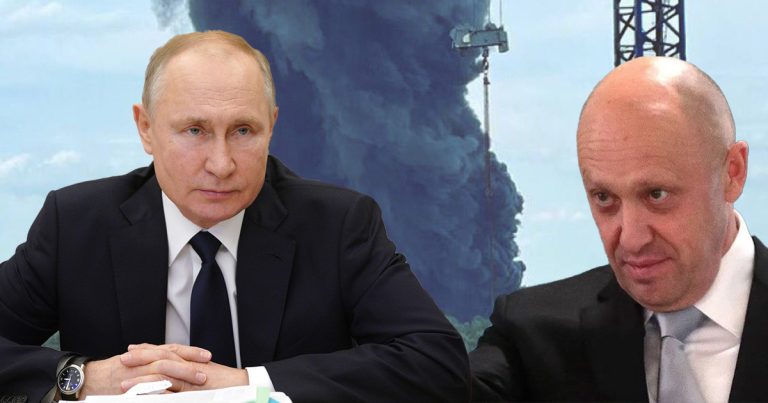24-6-2023 (MOSCOW) Unrest on this scale simply does not happen in Vladimir Putin’s tightly controlled Russia, especially in public.
Russian President Putin is facing the most serious threat yet to his two decades in power. The façade of total control that underpins his autocratic regime is visibly crumbling overnight.
This situation was both inevitable and impossible. Inevitable, because only a system as closed and immune to criticism as the Kremlin could survive such a foreign policy disaster. And impossible, as Putin’s critics usually vanish, fall from windows or are brutally poisoned. Yet now Russia’s fifth largest army is in danger of mutiny – the only thing that could save the Moscow elite from collapse.
Accustomed as we are to seeing Putin as a master tactician, initial signs of insubordination from the Wagner private military group led by Yevgeny Prigozhin were assessed by some as a Kremlin-directed stunt to keep generals on edge. But Putin’s admission that Rostov-on-Don, his military hub, is beyond his control shows this is more than a managed scenario.
However, Wagner units likely planned this rebellion in advance. The apparent air strike on a Wagner camp, which Russia denies, came hours after Prigozhin’s critique of the war.
He partially told the truth: Russia was not under threat from NATO, and Russians were not persecuted. He maintained the deceit that Russia’s top brass, not Putin, planned the invasion. Wagner units seem to have mobilized quickly to seize Rostov, suggesting preparation.
Prigozhin may have aimed to push Putin into replacing the criticized defense ministry top brass. But Putin’s Saturday address dispels that prospect. Russia’s elite now face an existential choice between Putin’s faltering regime and Wagner, the dark mercenary force it unleashed that now turns on its masters.
Russia’s military also faces clarity. Years ago, Prigozhin’s criticisms would have led to his covert removal. Yet he moves freely, eyeing a march on Moscow. Where are the FSB special forces, decimated by the war or unwilling to confront armed comrades?
This is not the first time Moscow has looked weak this spring. The drone attack on the Kremlin in May must have sown doubts among Putin’s elite about Russia’s defenses. Rebel insurgencies rarely achieve their goals, but upheaval and change are certainly ahead. Ukraine will celebrate the disastrous timing for Russia. This rebellion could alter the war’s course in Kyiv’s favor. However, the 1917 revolution in Russia turned into the Bolshevik Revolution, Lenin and the Soviet Empire.
As this rare Greek tragedy of Russian frailty unfolds, improvements are not inevitable. Prigozhin may fail and Kremlin control may survive. But a weakened Putin may act irrationally to prove strength. He may be unaware of discontent in Russian forces or lack real control over their actions. Russia’s role as a responsible nuclear power rests on stability at the top. Much can go wrong. Yet it is impossible to imagine Putin’s regime regaining its previous heights of control.




